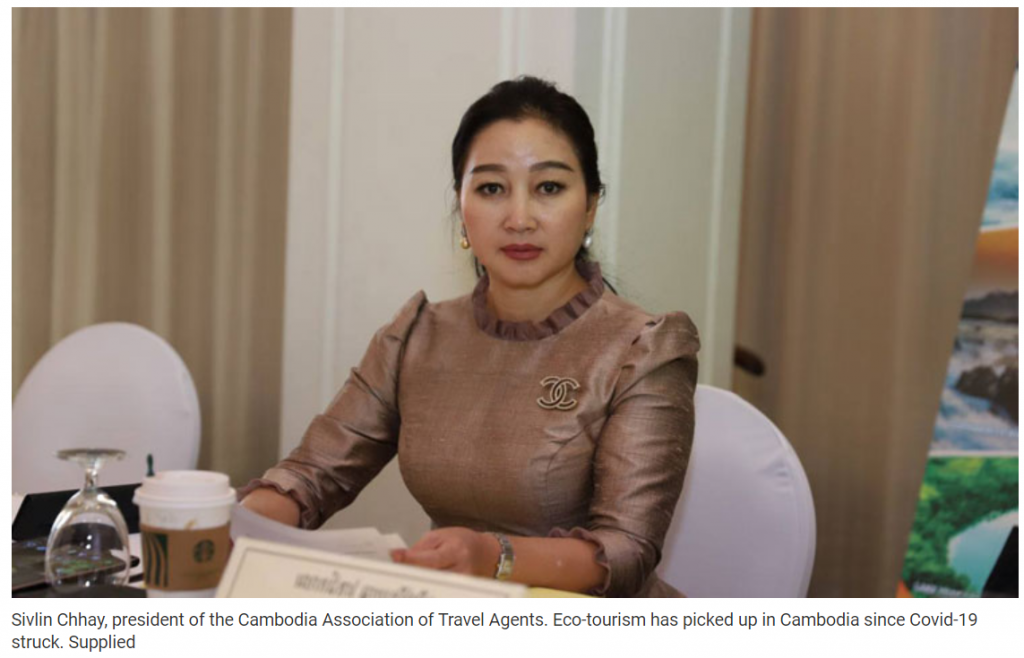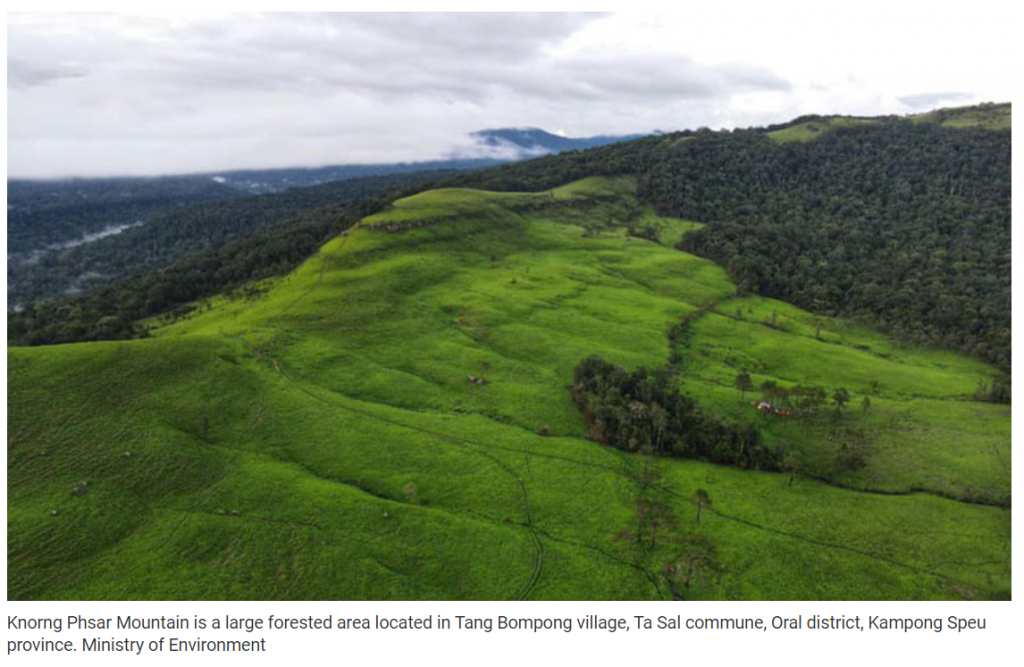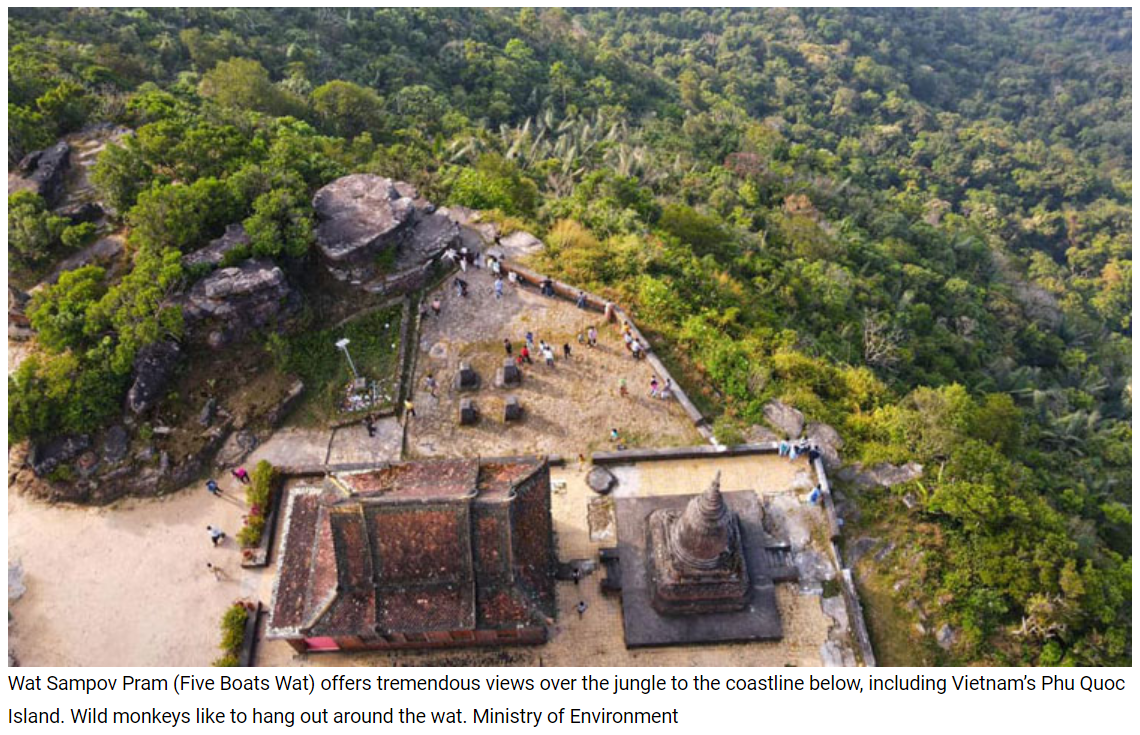The future of tourism in Cambodia
The hospitality and tourism industry has been hammered by the restrictions of Covid-19. Khmer Times’ Gareth Johnson spoke with Sivlin Chhay, president of the Cambodia Association of Travel Agents (CATA) as it copes with its biggest crisis since it was born in 1996. That year, the association brought tourist agencies of all sizes across the Kingdom together under one banner, organising them into a powerful lobbying force that today gives the commercial sector of the tourist industry a strong voice in a pillar sector currently under great stress.
KT: How do you think the Cambodian tourism industry can first begin to open to tourism?
SC: The Cambodian tourism industry can first begin to open up by pushing for domestic tourism. In fact, we have been seeing a great movement in domestic tourism with many locals travelling to various provinces across the country. Eco-tourism and adventure type holidays have become quite popular attractions in that we have seen the number of locals going on hiking and camping trips to the mountains increase more than ever before and, as a result, contribute to supporting the livelihood of regional communities. Not to mention, our government is currently conducting a study on the feasibility of allowing fully vaccinated tourists to enter the Kingdom by the fourth quarter of 2021 – and a good drive of domestic tourism would work as a mechanism to attract these potential tourists because they view Cambodia as a safe destination to visit.

SC: Post Covid-19, the Cambodia tourism industry will have growth although it might not be a big flow of tourists at first. The Ministry of Tourism has formed a road map to promote tourism after the pandemic, which includes the improvement of infrastructure and strengthening tourism skills through training programmes. Also, Cambodia tourism will experience a change in the way we tailor our products to offer to foreign tourists like never before. Prior to the pandemic, our tourism products were somewhat limited and the same products kept being offered to international travellers. However, we have had the chance to explore different types of tourism products and attractions during the pandemic as well as developing unique resorts and “glamping” [camping with additional comforts] experiences that will provide tourists more choices when they come to visit Cambodia.
KT: What does the government need to do to help the Cambodian tourist industry?
SC: The fundamental action needed from the Ministry of Tourism has already been accomplished by forming its Road Map Plans to Recover the Tourism Industry Post-Covid-19 and having that approved by the government. It was a great initiative by the ministry to have the private sector’s input while forming their road map. The next critical step by the government to help the industry will be the implementation of these plans.
KT: Many key tourism workers have now left to do others jobs. Will there be a skills shortage when tourism returns?
SC: It is definitely a worry regarding the reality that many tourism professionals have already left to do other jobs. It is a fact [though] that most tourism workers have [a] deep passion for this profession. However, it will be a concern for the industry if these key tourism workers give up entirely and do not return once tourism bounces back.
KT: Will Cambodia need to change its tourism focus in the future?
SC: Cambodia will need to shift its focus to enhancing quality from within. What I mean by this is that relevant tourism stakeholders should prioritise strengthening internally. For instance, focusing on improving services that include the way they receive tourists, improving social order, exploring new products to create creatively regarding packages etc. When the quality of products and services are better, Cambodia will be able to attract a good quality customer market as well.

KT: What does CATA plan to do to help revive the tourist industry?
SC: As part of the initiative to revive the tourism industry, CATA has planned to study and explore new tourism attractions and products with the goal of attracting repeat tourists who will visit Cambodia again. Additionally, we have plans to provide essential training programmes for tourism professionals. Last but not least, all the quality training and exploring of new products will have no use if we do not have anyone to sell to. Henceforth, CATA also includes in our plans, business-matching sessions that we will organise between Cambodian and foreign tour operating partners.
KT: Do you think there be a will need for vaccine passports to enable travel?
SC: Yes, vaccine passports should be made necessary because vaccination is a vital element in reviving the industry. I agree with the easing of travel restrictions within the country, but that said, I do not oppose the restrictions necessary to prevent the further spread of the virus. Properly implemented safety measures from the country’s Ministry of Health will make for healthy domestic travel. Since international travel and receiving foreign tourists into the country is yet to be proven a possibility, domestic tourism will keep the tourism industry afloat.
Source: https://www.khmertimeskh.com/50865250/the-future-of-tourism-in-cambodia/


 English
English




